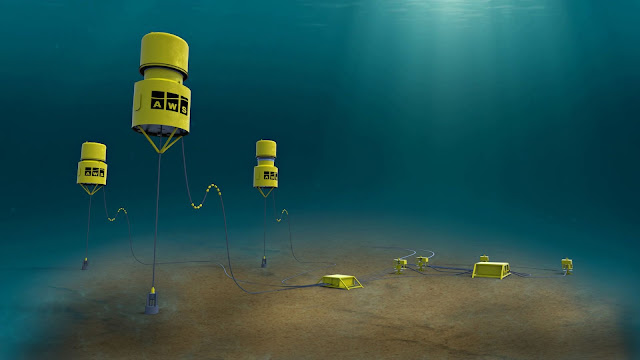 |
| Wave Energy Converter |
The vast expanse of the ocean is not just a source of beauty and life, but also a potential goldmine of renewable energy. Wave energy converters (WECs) are innovative devices that harness the power of ocean waves to generate electricity. In this blog, we explore the basics of WECs and their potential to contribute to a sustainable energy future.
What
is a Wave Energy Converter?
A wave energy converter is a device that transforms
the kinetic and potential energy of ocean waves into usable electrical energy. There
are several types of WECs, each with its own method of capturing wave energy
and converting it into power.
Types
of Wave Energy Converters:
- Point
Absorbers: These devices float on the water's
surface and capture energy from all directions. They use the motion of the
waves to generate power.
- Oscillating
Water Columns: These WECs use a partially
submerged chamber to capture the up-and-down motion of the waves, which
pushes air in and out of the chamber to drive a turbine.
- Attenuators:
Long, jointed structures placed parallel to the wave front capture the
motion of the waves and convert it into electricity.
- Overtopping
Devices: These devices capture waves and
channel the water into a reservoir, where it falls and drives a turbine to
generate power.
Advantages
of Wave Energy Converters:
- Renewable
Energy Source: The ocean's waves are a consistent
and renewable source of energy that can be harnessed indefinitely.
- Minimal
Environmental Impact: WECs typically have a low
impact on marine life and ecosystems compared to traditional energy
sources.
- High
Energy Density: Wave energy has a higher energy
density than other renewable sources like wind and solar, meaning more
energy can be generated in a smaller area.
Challenges
and Future Prospects:
- Cost
and Infrastructure: WECs require significant
investment in terms of manufacturing, installation, and maintenance.
- Environmental
Considerations: Potential impacts on marine life
and coastal erosion must be carefully studied and managed.
- Technology
Advancements: Ongoing research and development
are necessary to improve the efficiency and durability of WECs.
Wave energy converters hold great promise as a
source of clean, renewable energy. As technology advances and challenges are
addressed, WECs could play a key role in the transition to a sustainable energy
future.



0 Comments